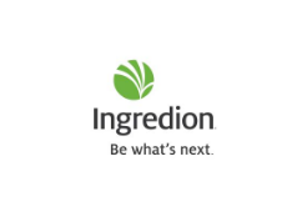News
Ethical claims good for business
17 Apr 2018Transparency has become one of the buzzwords of 2018, as consumers demand greater evidence that foods and ingredients are sustainably and ethically sourced.

It turns out that properly certified ethical claims are extremely good for business. The stock price of the most ethical publicly traded companies is 6.4% higher than the S&P 500 average, according to The Ethisphere Institute.
For the fourth year running, The Ethisphere Institute published the World’s Most Ethical companies list. Ingredion gained a coveted place on 2017 list and was the only ingredients company recognised.“[Companies on the list] invest in their local communities around the world, embrace strategies of diversity and inclusion, and focus on long term-ism as a sustainable business advantage,” said Ethisphere’s Chief Executive Officer, Timothy Erblich. Euromonitor International says ethical labels on global food and drink products were worth $794 billion in 2017 – $67 billion more than health and wellness claims. It launched an ethical claims tracker in 2016 in response to growing demand for sustainability, social responsibility and transparency on labels. The tracker looks at the performance of 38 ethical labels across 26 countries, with the aim of steering companies toward the social and environmental trends that are most likely to open up new revenue streams. Selecting effective claimsWith only a limited amount of space on product packaging, companies want to focus on publicising the claims that will have the biggest effect on their bottom line. In Western Europe, Euromonitor found the fastest growing claim was vegan/vegetarian, followed by Rainforest Alliance Certified and certified sustainable palm oil. However, the effect of such claims varies by region and product.In the UK, for example, Fairtrade certification is likely to deliver the greatest long-term value to a chocolate maker, even though vegan and Rainforest Alliance Certified products are growing at a faster rate. In France, however, Fairtrade chocolate is expected to see a decrease in retail value, while the data suggest a UTZ certification could prove more lucrative.Which certification to use?For ingredients manufacturers looking to appeal to multinational markets, the best approach may be to ensure every ingredient is certified through multiple certification bodies. Swiss cocoa and chocolate supplier Barry Callebaut, for instance, has published a sustainable sourcing policy in nine languages, which applies to a swathe of ingredients, not just cocoa, but also cane and beet sugar, palm oil, hazelnuts, dairy products, vanilla, soy, shea, and even packaging. It offers a range of certifications, including Fairtrade, organic, UTZ certified and Rainforest Alliance certified, alongside its own sustainability programme. Referring to its cocoa, it says it can offer “all major certifications”.

